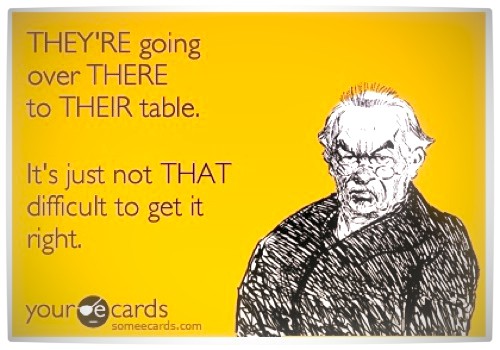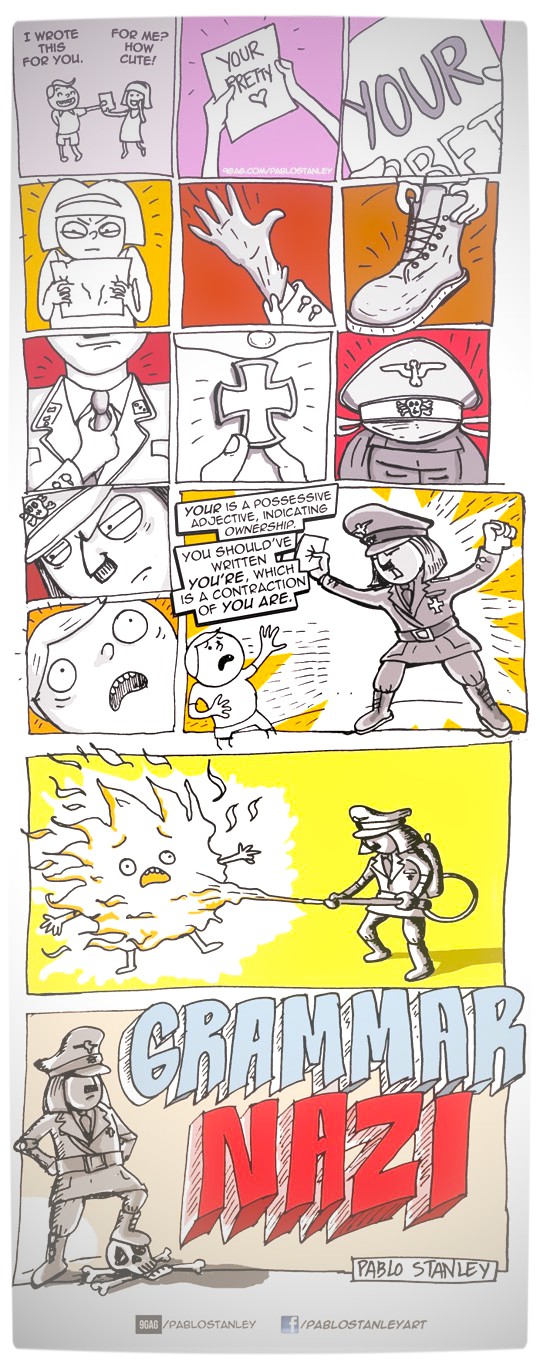Who needs grammar?
A large percentage of modern day communication takes place by means of text or instant messaging, through social media and email; leaving us with only a small number of characters, and time, in which to have a proper conversation. What we say needs to be said fast and effectively, and has sculpted us into masters of speaking our minds using only a limited number of words. This social evolution has also helped us to voice our opinions instantly, and to many people at the same time.
The downside of this convenience is that the English language, specifically, has been plundered of its rules, tenses, grammar and punctuation. Considering how much faster and more effective it is to use a colon, a dash and a bracket 🙂 to exhibit an emotion rather than actually saying that you are happy; why would someone then waste time expressing themselves with the intricacies of the written word?
Some argue that the rules of language are archaic. However, as we increasingly infuse our vocabulary with slang, foreign words and acronyms such as LOL, LMFAO and BRB to name a few, the importance of having good grammar presents itself.
[yframe url=’http://www.youtube.com/watch?v=N4vf8N6GpdM’]
Firstly, no matter how busy your life is or how much you have to say, if you don’t spell correctly or if you choose to write in text message short-hand, make no mistake, people WILL think that you are an idiot. As a result, all of the people that could potentially be reached by your unique online voice will fail to listen to you, because people do not like listening to idiots. Thus, do yourself, and all of those exposed to your written genius, a favour and learn when to use:
then and than,
which and that,
is and are,
has and have,
it’s and its,
and (my personal favourite), to and too.
Secondly, I would suggest that you become familiar with the use of apostrophes and commas within sentences. There will be times when knowing the correct rules will get you out of sticky situations and could potentially save you a lot of embarrassment. For example, it is important to know the difference between ‘knowing your shit’ and ‘knowing you’re shit’. It could also be a lifesaver. Note the difference between ‘lets eat, Grandma’ and ‘lets eat Grandma’.
I am a child of the digital revolution and I am all for shortening sentences and getting your point across quickly and easily. However, I have also experienced first hand the advantages of good grammar. Creative license is a beautiful thing, but word play and incorrect grammar are not one and the same. The trick is to be able to identify when it is appropriate to use text-message shorthand, which is never, and when to use proper language.
Thus, in real life, do us all a favour and use the full word like ‘before’, not ‘B4’ – speak English, not Bingo.
Regards,
A Grammar Nazi
[Sources: 9Gag, Fugly, YouTube]
With a Masters in political communication studies and a working background in copywriting, Marika has a strong penchant for spotting, deciphering and fixing grammatical errors. She is also a lover of beautiful shoes and entertainment media.






